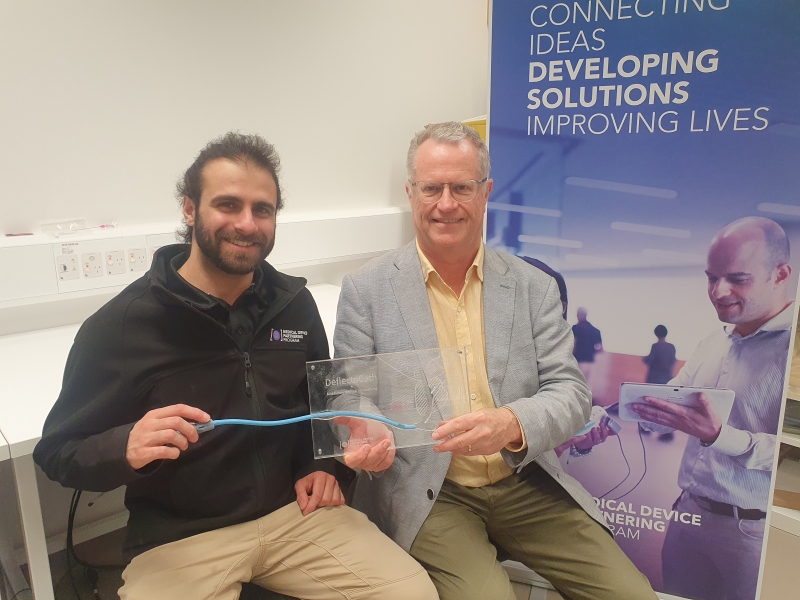An Australian clinical surgeon has collaborated with the Medical Device Partnering Program (MDPP) at Flinders University to develop a novel catheter for safely navigating the intricate curves and contours of the male urinary tract.
Urological surgeon Associate Professor Ian Middleton developed "DeflectaCath," a silicone catheter equipped with a unique deflection mechanism in its tip, to simplify the insertion procedure for clinicians and improve the health outcomes for patients.
DeflectaCath provides a safe and comfortable catheterisation solution for men managing health conditions or undergoing medical procedures. It allows practitioners to manoeuvre the catheter through the length and curvature of the urethra, effectively minimising the risk of potential complications.
A/Prof Middleton said it was exciting working with the MDPP team to prototype a standout medical device that improves the catheterisation experience for both healthcare professionals and their patients.
“Working closely with the MDPP team has allowed us to concentrate on innovating the design of DeflectaCath, ensuring an easy and intuitive insertion and placement for medical staff while reducing the associated health risks of urethral trauma for patients,” said A/Prof Middleton.
The unique deflection mechanism in DeflectaCath's tip enhances device maneuverability, minimising the chances of urethral damage or the formation of false passages that can occur from urethral wall perforation. This advancement is especially critical with studies reporting that catheterisation poses challenges in around one in five cases.
“We’re extremely excited to have developed an efficient and effective catheterisation alternative which is unlike any of the current catheters being used by clinicians,” said A/Prof Middleton. “Thanks to the MDPP team, DeflectaCath now includes manual control, allowing medical practitioners to navigate a patient's anatomy throughout the entire procedure. This capability represents a game-changing advancement for both practitioners and patients,”
Professor Karen Reynolds, director of MDPP, highlighted that DeflectaCath's potential transformative impact on healthcare delivery marks a new era of enhanced patient outcomes and improved quality of care in urology.
“Our team takes pride in supporting innovators like Ian to find novel solutions and DeflectaCath represents a significant breakthrough in urological procedures,” said Prof Reynolds. “Helping to revolutionise the catheterisation process reflects our steadfast commitment to innovation and advancing patient care and outcomes.”
This project involved resources from the Medical Device Research Institute (MDRI) at Flinders University, the Australian National Fabrication Facility (ANFF) and the team at MDPP provided 250 hours towards proof-of-concept research, prototyping and product validation. Fostering collaborations between researchers, industry, end-users, and government to develop medical technologies with global market potential, the MDPP is an ideas incubator. Do you have an innovative medtech idea? Submit your idea through our website and a member of the team will get in touch. For any other questions please contact us on 08 8201 5029 or email This email address is being protected from spambots. You need JavaScript enabled to view it..

Photo: A transparent model of the urethral anatomy has been produced to demonstrate how the deflection mechanism can allow the catheter to bypass a false passage and prevent new trauma to the urethra.